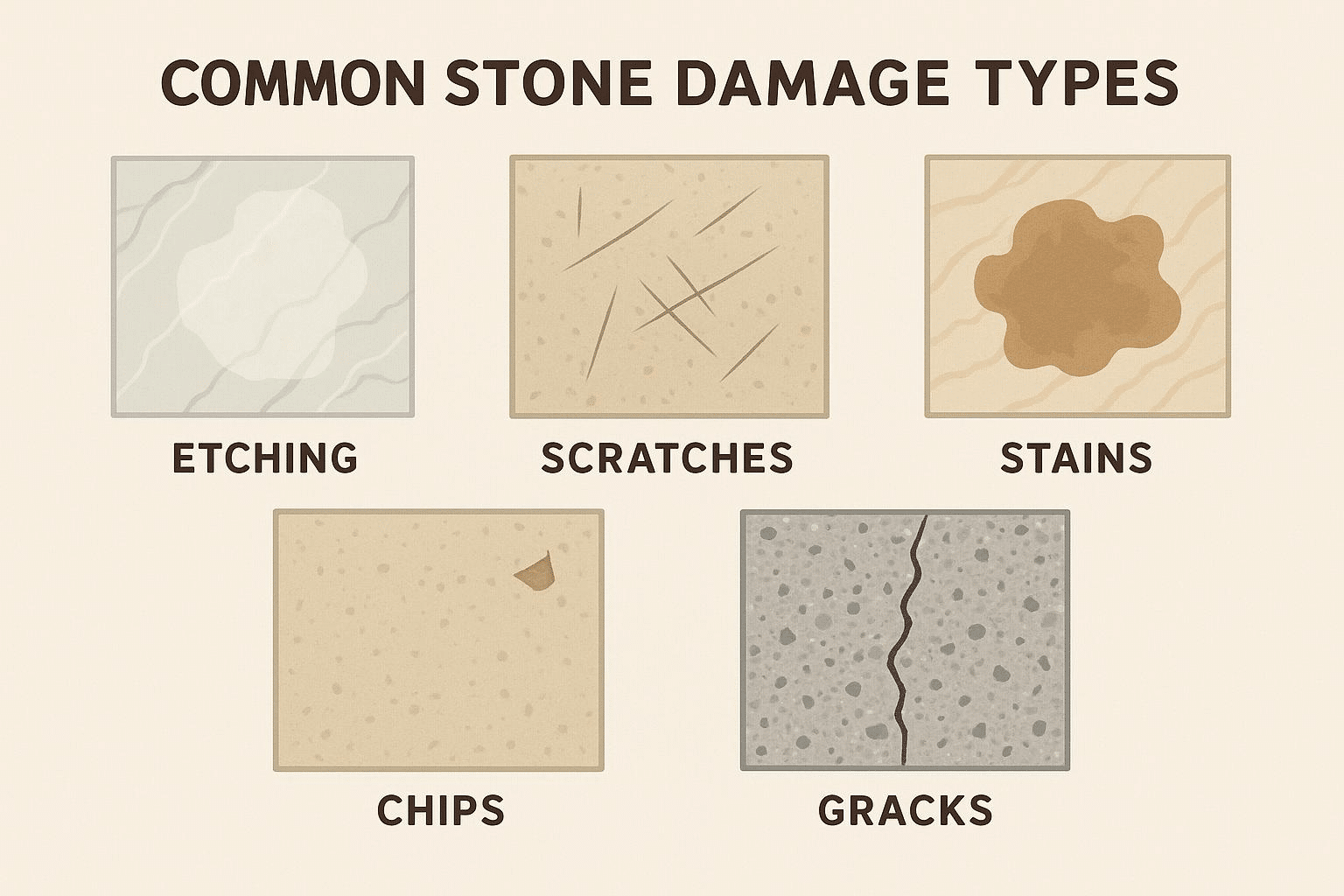Can You DIY Stone Restoration? Pros, Cons & When to Call a Pro
Natural stone surfaces add elegance and value to any space. Popular types like marble, limestone, travertine, granite, and quartzite are prized for their beauty and durability. However, even the most resilient stone can develop damage from daily use, spills, and foot traffic. When your stone surfaces begin to look dull or damaged, you might wonder: should you attempt restoration yourself or hire a professional?
What Is Stone Restoration?
Stone restoration services in Sydney go beyond regular cleaning. It involves repairing damage, honing the surface, and polishing to restore the stone’s original appearance. Think of it as a complete service for your stone surfaces that addresses underlying issues while bringing back the shine.
Anyone with stained, scratched, or worn stone surfaces may benefit from restoration. This includes homeowners with stained bathroom vanities, business owners with dull granite bars, or property managers dealing with scratched stone floors.
Common Stone Problems That Require Restoration
Stone surfaces can develop various issues over time:
- Etching – dull spots caused by acidic substances (common in marble and limestone)
- Scratches – from dirt, furniture, or dropped items
- Stains – from wine, oil, coffee, or water (especially in absorbent stones)
- Chips and cracks – from impacts or structural issues
- Damaged grout – crumbling or discolored grout lines
- Overall dullness – loss of shine from years of use
DIY Stone Restoration: What Can You Really Do?
When DIY Makes Sense
DIY restoration works well for:
- Basic maintenance and regular cleaning
- Minor scratches or small chips that can be repaired with stone repair kits
- Light dullness that might be restored with appropriate polishing products
- Small areas where professional equipment isn’t necessary
Common DIY Tools and Methods
The DIY stone care toolkit typically includes:
- Soft cloths or mops
- Clean bucket
- pH-neutral stone cleaner
- Color-matched epoxy or putty for small repairs
- Stone-specific polishing compounds
Maintenance vs. Restoration
This distinction is crucial. Maintenance involves regular cleaning and preventative care—wiping spills immediately, using coasters, and gentle washing. Restoration addresses actual damage like removing deep stains or repairing significant scratches. Most DIY efforts focus on maintenance rather than true restoration.
Pros and Cons of DIY Stone Restoration
DIY Advantages
- Cost savings on professional labor
- Flexibility to work at your own pace
- Satisfaction of completing the project yourself
DIY Disadvantages
- Risk of mistakes due to lack of experience
- Wrong products can damage different stone types
- Household cleaners may cause etching or discoloration
- Results often inferior to professional work
- Time-consuming, especially for large areas
Common DIY Mistakes
Using household cleaners, abrasive pads, improperly applying sealers, or attempting repairs beyond your skill level can lead to permanent damage. These mistakes often make the stone look worse and may require professional intervention—ultimately costing more than hiring a pro initially.
Professional Stone Restoration Process
What Professionals Do
Professionals follow a comprehensive process:
- Thorough inspection and deep cleaning
- Repair of chips and cracks
- Honing to remove scratches and wear
- Diamond polishing to restore shine
- Grout cleaning and repair
- Application of high-quality sealers
Professional Tools and Expertise
Professionals use commercial-grade equipment:
- Heavy-duty floor machines with diamond abrasives
- Professional-strength cleaners and sealers
- Specialized knowledge of different stone types
- Training to identify the appropriate approach for each situation
Expected Results from Professional Work
Professional restoration delivers superior results:
- Complete restoration of smoothness and shine
- Removal of deep stains and rough patches
- Uniform finish across the entire surface
- Long-lasting protection with quality sealers
DIY vs. Professional: Making the Right Choice
Cost Considerations
While DIY appears cheaper initially, professional restoration often provides better long-term value. Professional work typically costs $1-$3 per square foot depending on the project but prevents expensive problems and maintains your stone’s beauty longer.
Safety Factors
Stone restoration can involve chemicals requiring ventilation, protective gear, and proper handling. Professionals are trained to work safely with these materials and equipment.
When to Definitely Call a Professional
Seek professional help when you notice:
- Persistent dull spots that won’t clean away
- Deep or numerous scratches
- Stubborn stains that won’t lift
- Large areas of lost shine
- Uneven surfaces
- Damage beyond the surface level
For major damage, structural issues, or valuable stone surfaces, professional inspection is always recommended. A professional can identify problems you might miss and provide more comprehensive solutions.
Frequently Asked Questions
Can all stone surfaces be restored through DIY methods? No. While basic cleaning is appropriate for most stones, significant damage to sensitive stones like marble and limestone typically requires professional restoration.
What cleaners are safe for stone? Always use pH-neutral cleaners specifically formulated for natural stone. Avoid acidic products (vinegar, lemon), abrasive powders, and harsh alkaline cleaners.
How often should stone be professionally restored? This depends on usage, stone type, and maintenance. High-traffic commercial floors might need restoration every few years, while well-maintained residential surfaces may go much longer between services.
Are there hidden costs with DIY restoration? Yes. Beyond materials, you might need to rent equipment, spend significant time learning and executing the process, or ultimately hire a professional to fix mistakes—potentially costing more than professional restoration initially.
Good stone maintenance begins with prevention—clean spills immediately, use appropriate cleaners, and consider professional restoration when DIY cleaning no longer delivers the results you want.







